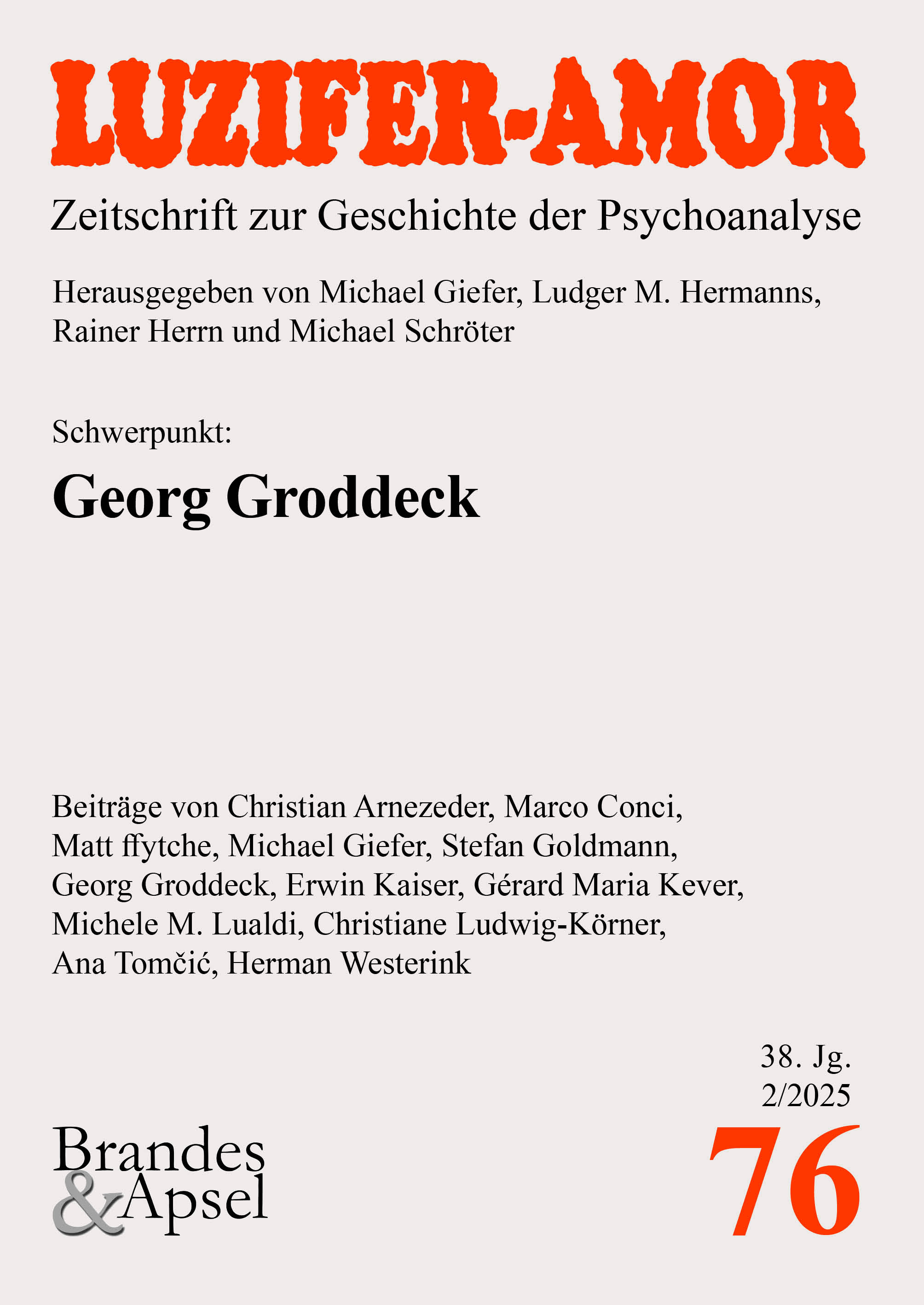Heft 76 ( 38. Jg. 2025): Georg Groddeck

bestellen (Heft oder E-Journal) (Gesamtheft und Einzelbeiträge)
Stefan Goldmann
Reinhold Stahl (1904–1944). Kunstschriftsteller und Antiquar (S. 136–154)
Zusammenfassung: Der Aufsatz erinnert an das Schicksal des Berliner Antiquars Reinhold Stahl, der 1936 Freuds Briefe an Wilhelm Fliess erworben hatte und an Marie Bonaparte weiterverkaufte. Schon als Jugendlicher wuchs er in die Berliner Kulturszene hinein, gründete ein Antiquariat, schloss sich der Buchkunstbewegung an und handelte sowohl in Berlin als auch in Paris mit Büchern und Autographen. Anhand von Auktionskatalogen wird die Zusammensetzung des Teilnachlasses, den Stahl von Conrad Fliess übernommen hatte, rekonstruiert. Nach dem Verkauf der aufgeteilten Sammlung emigrierte Stahl nach Italien, wo er nach dessen Kriegseintritt in Civitella del Tronto interniert wurde. Ein Briefwechsel aus dieser Zeit mit dem Dresdener Zoologen Klaus Günther enthält seine Meditationen über die herrschenden Zustände und ihre dichterische Verarbeitung. Erwähnung findet darin auch der anhaltende freundschaftliche Kontakt zu Marie Bonaparte, die Stahl vor der Deportation nach Auschwitz nicht bewahren konnte. In einem Anhang werden die frühesten Freud-Autographen, die in den Antiquariatshandel gelangt sind, aufgeführt und als neue Quellen gewürdigt.
Summary: Reinhold Stahl (1904–1944). Art writer and antiquarian. The essay recalls the fate of Berlin antiquarian Reinhold Stahl, who acquired Freud’s letters to Wilhelm Fliess in 1936 and sold them on to Marie Bonaparte. Even as a teenager, Stahl became involved in the Berlin cultural scene, founded an antiquarian bookshop, joined the book art movement and traded in books and autographs both in Berlin and Paris. The partial estate of Fliess, which Stahl had taken over from Conrad Fliess, will be reconstructed on the basis of auction catalogs. After selling the fragmentized collection, Stahl emigrated to Italy, where he was interned in Civitella del Tronto after the country entered the war. His correspondence with the Dresden zoologist Klaus Günther contains descriptions of his circumstances and attempts to reflect them in poetry. Also mentioned is his continuing friendship with Marie Bonaparte, who was unable to save Stahl from deportation to Auschwitz. An appendix lists the earliest Freud autographs that have come into the antiquarian book trade and acknowledges them as significant sources.
